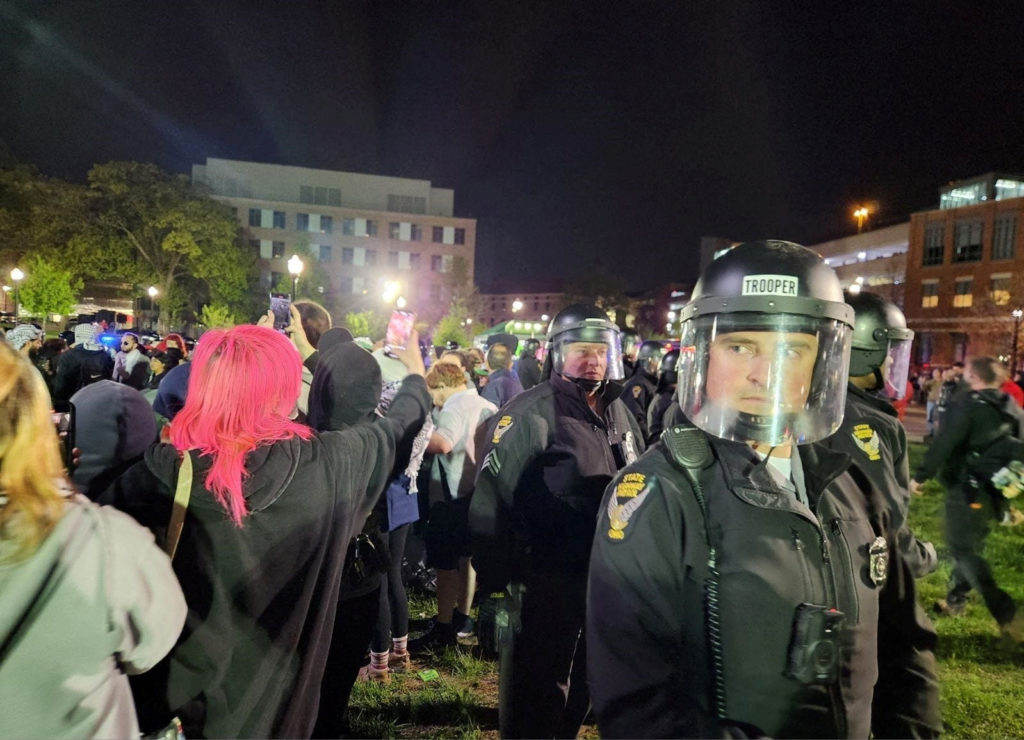Denver is overhauling its approach to serving migrants in a major shift announced Wednesday — along with revised budget impact projections that soon will allow the city to roll back some cuts, including reduced hours at city recreation centers.
Mayor Mike Johnston said the city would discontinue the costly practice of sheltering newly arrived migrants from the southern U.S. border in hotels for several weeks. Instead, the new strategy calls for renting apartments to house roughly 1,000 asylum-seekers at a time for up to six months, while city partners assist them with cumbersome paperwork to file for asylum and obtain federal work authorization.
Starting this month, new arrivals initially will have access to an overnight congregate shelter for just a few days — rather than hotel rooms where, until now, families could stay for up to six weeks. That change drew some criticism from immigrant advocates.
The shift comes as the flow of migrants on buses into Denver has slowed in recent months. Johnston portrays the new approach as prioritizing the quality of services offered over the number of people served.
He says it will significantly drive down the projected city budget shortfall in 2024 to just half of what was once estimated.
“Three months ago, we found ourselves stuck in the same trap, with continuous waves of newcomers, no federal support (and) challenges for access to work authorization,” Johnston said during a morning news conference. “But we knew that serving our newcomers well could also mean serving the city well.”
The next phase will aim to do both, he said, by providing the migrants already here with better pathways to work while spending less.
Johnston estimated the new Denver Asylum-Seeker Program, along with all other migrant response spending, will cost just shy of $90 million this year. The sources to cover $44 million of that already have been identified.
The remaining $45.9 million would be made up from a package of cuts the administration plans to bring to the City Council for consideration this month. They include nearly $20 million saved by not filling some open city positions and nearly $10 million saved this year by deferring capital projects.
Johnston emphasized that core public services would be preserved and that no city employees would be subject to furloughs or layoffs under the revised budget estimates.
Reassessing budget impact
The current projections are a far cry from the $180 million hole the administration warned the city could fall into during the earliest days of this year, based on worst-case-scenario projections; more recently, it had been reduced to $120 million. Most city departments will now face budget cuts in the range of 2-4%, not 10-15%.
That was the original target in early January when the city was sheltering upwards of 5,000 migrants per night.
Given the lower expected funding gap, Johnston’s administration is reversing some initial budget cuts announced in February. Reductions in hours at recreation centers and at Department of Motor Vehicles offices, which have had rolling closures, will be reversed, Johnston said.
Normal rec center hours will resume on June 7, and the city also will restore disrupted Denver Parks and Recreation programs and permitting.
The city still won’t be planting many flowerbeds at parks this season, administration officials said. The planting window has closed for some flower species, though some parks will have blooms thanks to the efforts of volunteers.
For newly arrived migrants in Denver, which has seen some of the heaviest numbers among U.S. cities that aren’t on the border, the new strategy comes with downsides for those who might have the expectation of short-term support.
The city has spent more than $68 million supporting the more than 40,000 migrants who arrived in the city since December 2022, many of them fleeing economic and social strife in Venezuela. A vast majority of that spending has been dedicated to providing shelter in hotel rooms. That sheltering method was costing the city $90 to $100 or more per person each night, according to the mayor’s estimates.
Until now, the limit on stays was 14 days for single adults and 42 days for families with children.
The hotels, which gradually have been closed down, will be replaced by congregate shelters. Newly arrived people will get just two or three days to figure out their next move.
From there, if there is no capacity in the new asylum-seeker program, those migrants will have to leave the city’s overnight shelter, either to move in with family or friends locally or to continue on to another location with Denver’s support.
The administration has dispatched two Denver Human Services staff members to El Paso, Texas, many migrants’ first stop in the United States, to spread the word that longer hotel stays will no longer be offered, according to the mayor.
“They’re already talking to newcomers there, talking to nonprofit partners and others — because again, many folks came to Denver because they knew about a 42-day stay opportunity,” Johnston said.
He suggested the change could prompt some migrants to head elsewhere.

More intensive help for some migrants
City officials cited a capacity in the Denver Asylum-Seeker Program of anywhere from 800 to 1,200 people. It will start with a cohort of all the people currently in the city’s hotel shelters, city officials said.
As of Wednesday afternoon, that number was 784 people, according to the city’s migrant dashboard.
The asylum program will not be a light lift. Johnston estimated that each proactive asylum legal filing takes 20 to 40 hours of legal paperwork, requiring the help of an immigration attorney. From there, enrollees face a roughly six month wait before they will be granted work authorization — a step that’s available under U.S. law once people who haven’t already qualified have initiated their asylum claim.
In the meantime, the city will provide people with housing, financial support for food and other essentials, and job and life skills training.
The alternative, Johnston said, is for migrants to wait, unable to work, for court dates that are now being set out to the early 2030s when people claim asylum at the border.
But immigrant advocates, including the American Friends Services Committee, sharply criticized the administration’s decision to end the hotel sheltering effort.
Jennifer Piper, that organization’s program director for Colorado, said advocates only learned of the pivot in a meeting with city officials on Tuesday night.
Even if the asylum-seeker program is a success for those who are granted a slot, it will create a system with “haves” and “have-nots,” she said.
“Mayor Johnston and his administration have given up on the networks of care we created together and a vibrant Denver that welcomes newcomers,” Piper said in a statement Wednesday cosigned by five other organizations.
In an interview, she suggested the changes could result in more migrants living on the street again.
While the city’s migrant flow has slowed significantly since January, the specter of another spike looms — raising the question of whether Denver’s new setup could be overwhelmed.
The mayor’s budget proposal does include a $10 million contingency line item with that in mind.
During a meeting with Denver Post journalists on Tuesday, Johnston said that if numbers surged again, that money would cover “a lot of congregate shelter sites and onward travel tickets — because congregate shelters are not staffed at nearly the expense that hotel shelters are.” Congregate shelters are typically set up in large, open spaces that provide less privacy for people who stay there.
Johnston and nonprofit partners, including Yoli Casas at ViVe Wellness, said the program could be a positive for new arrivals and for the city’s economy.
“The reason why we’re so excited about this outcome today is this is a plan that is going to better serve migrants who arrive in the city,” Johnston said. It will enable migrants “to support themselves and to support industries that have open jobs.”
Johnston, in his meeting with The Post, said the administration was not worried about the plan to lease hundreds of apartments squeezing the city’s housing supply. Nonprofit partners are finding ample capacity thus far, he said, a point echoed by Casas at Wednesday’s news conference.
“The beautiful thing is citizens have come through and said. ‘We have rental properties that we would like to help,’ ” Casas said. “So that has been huge for us.”







